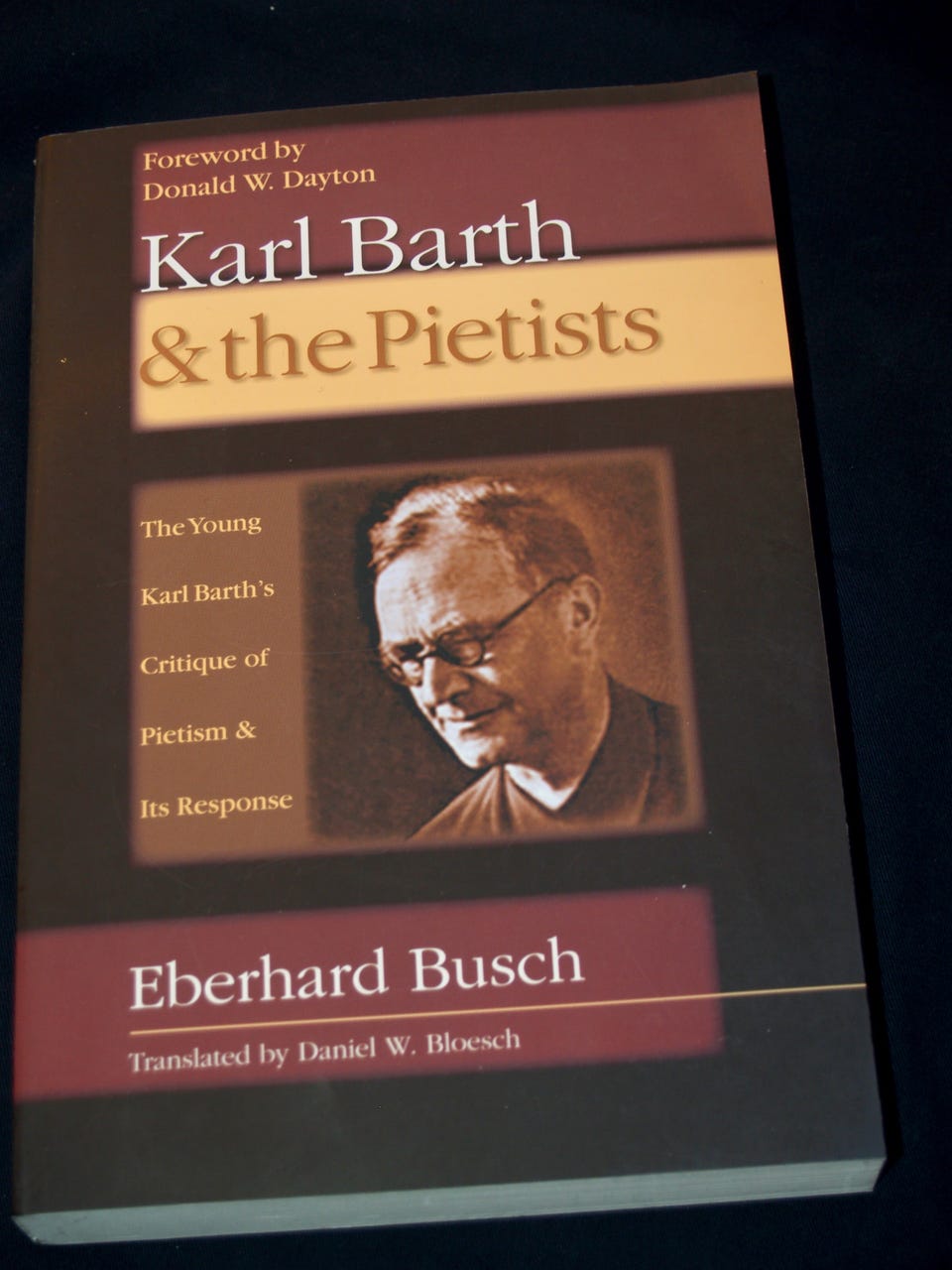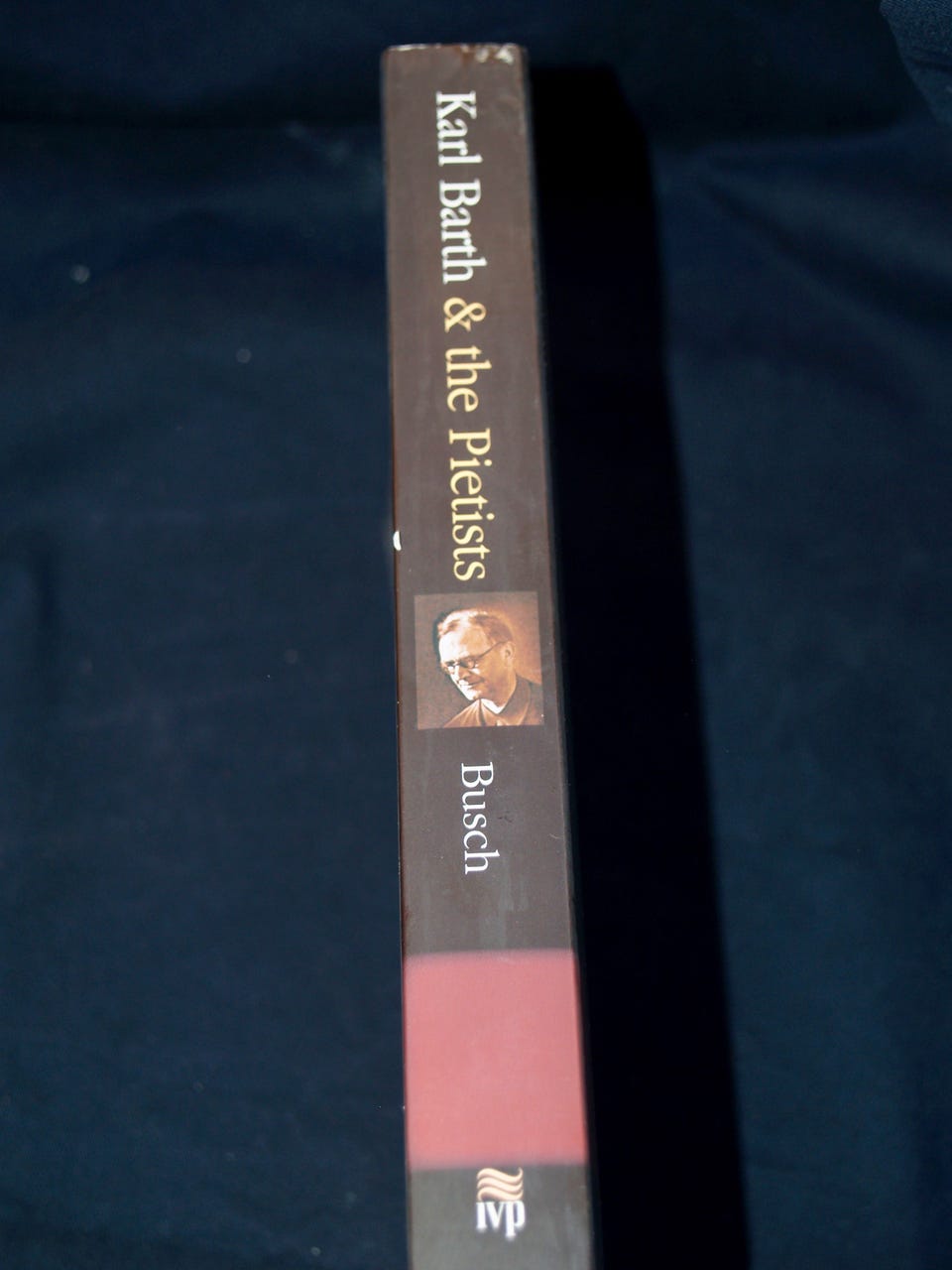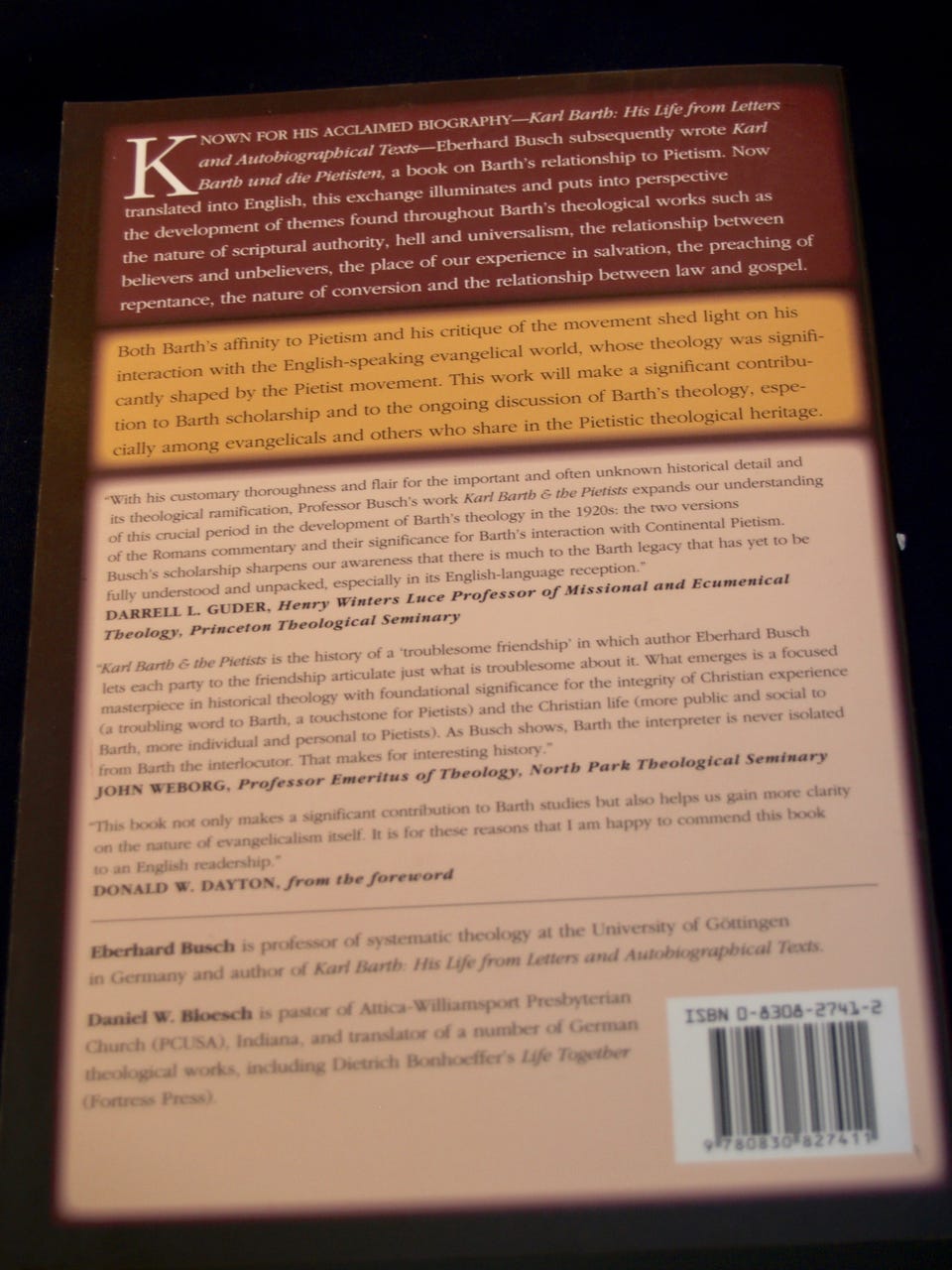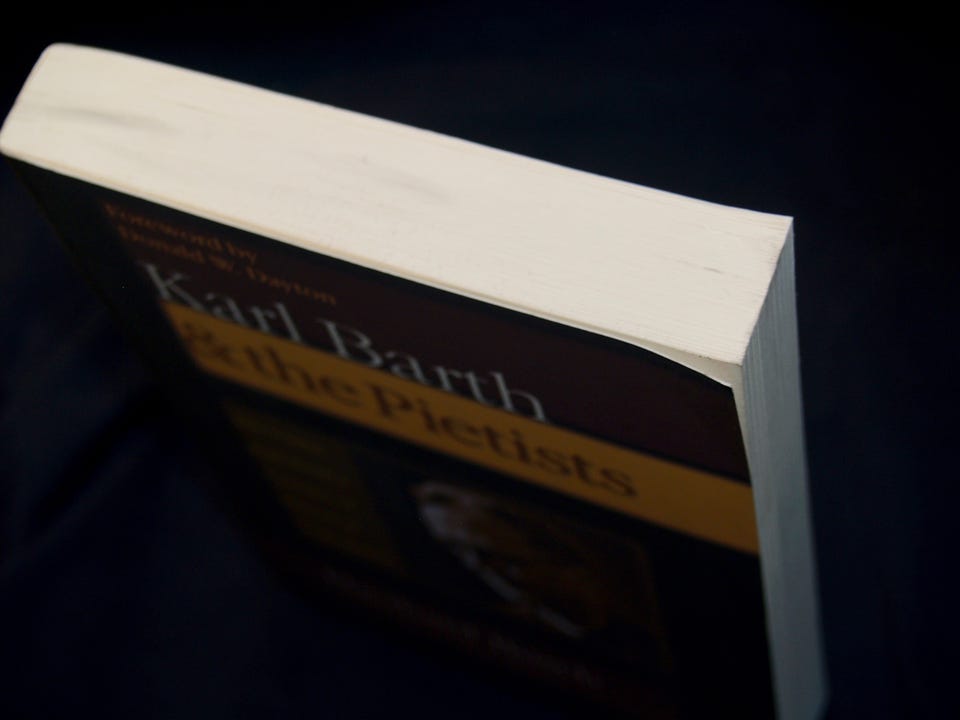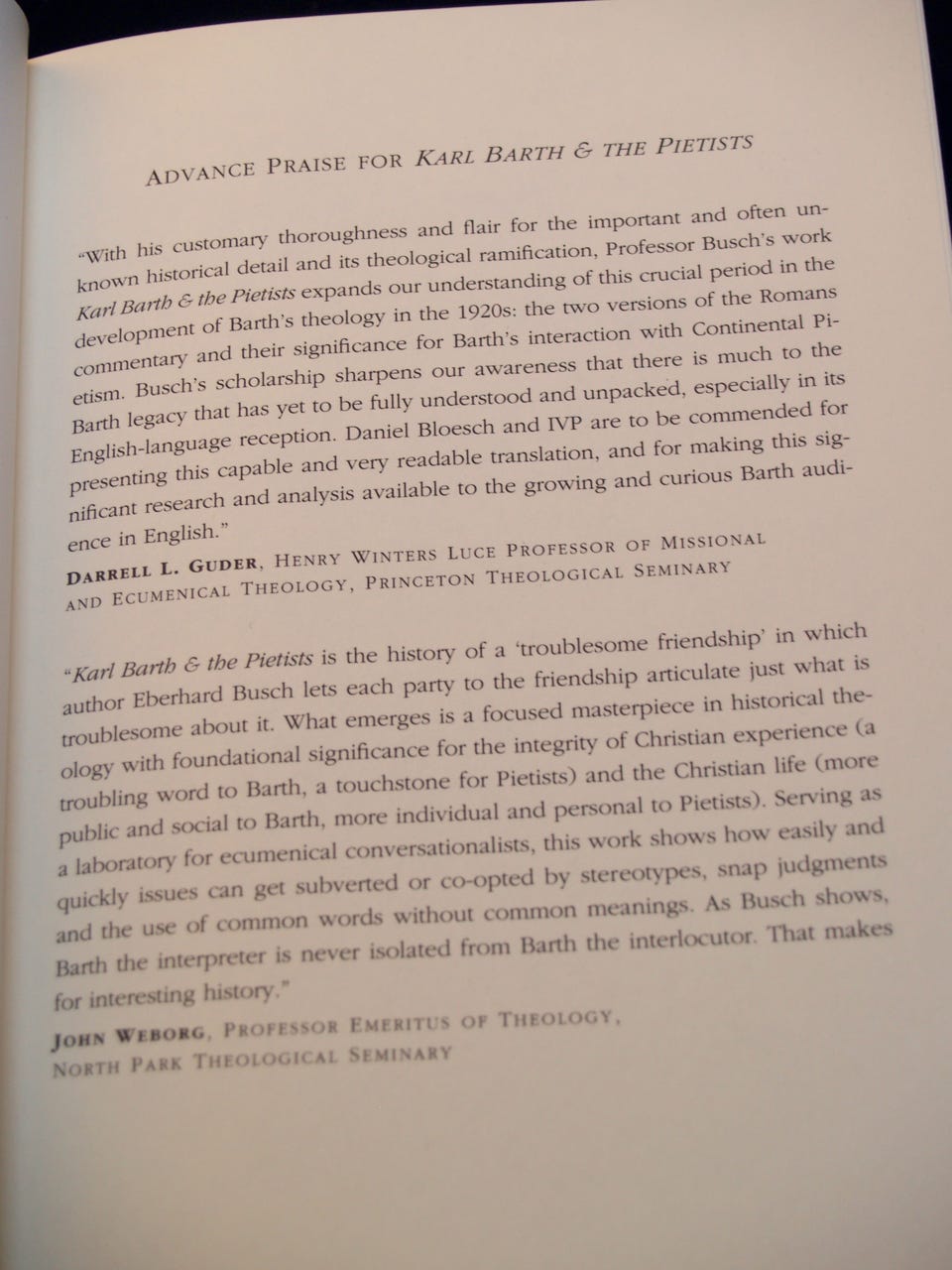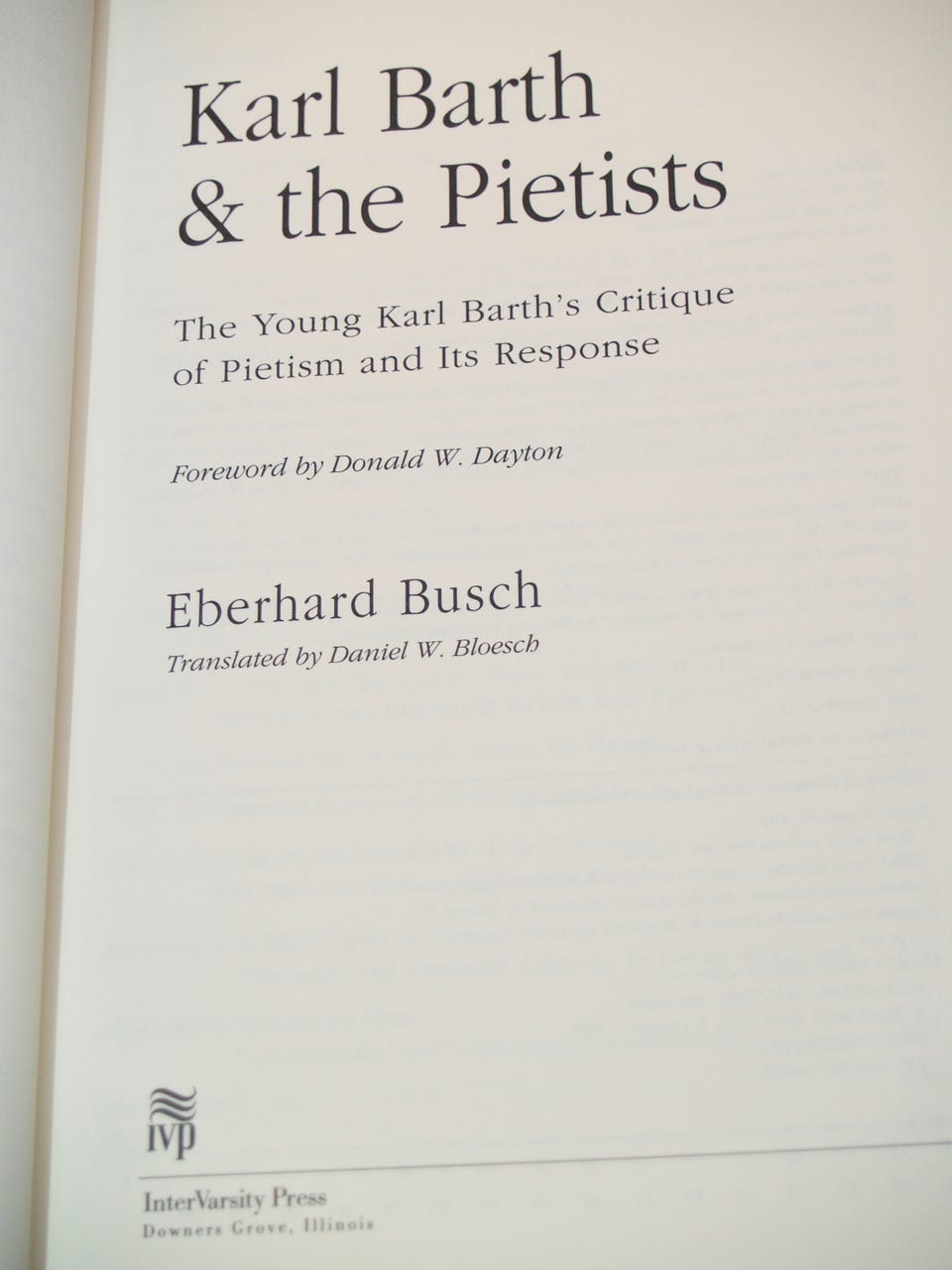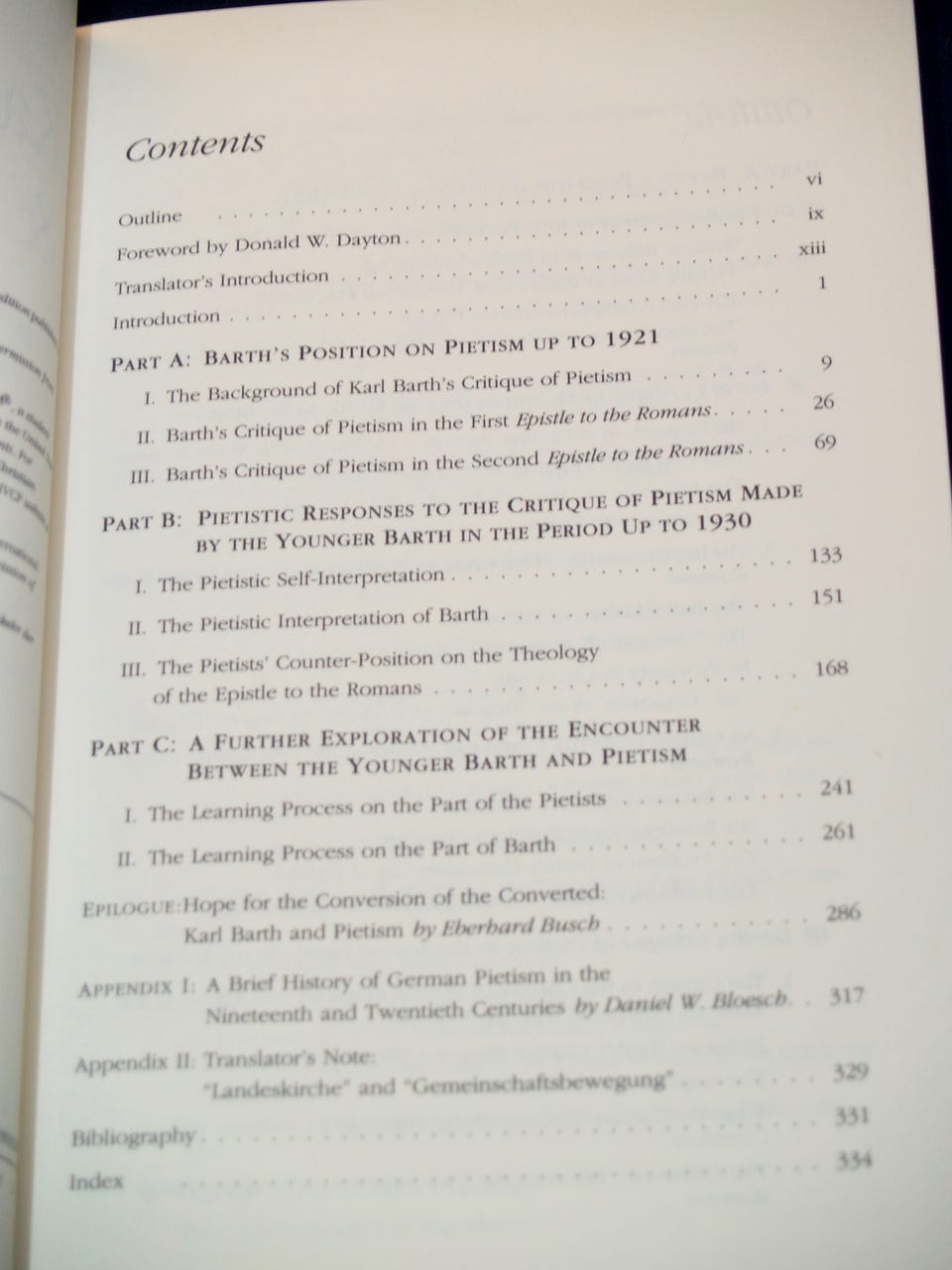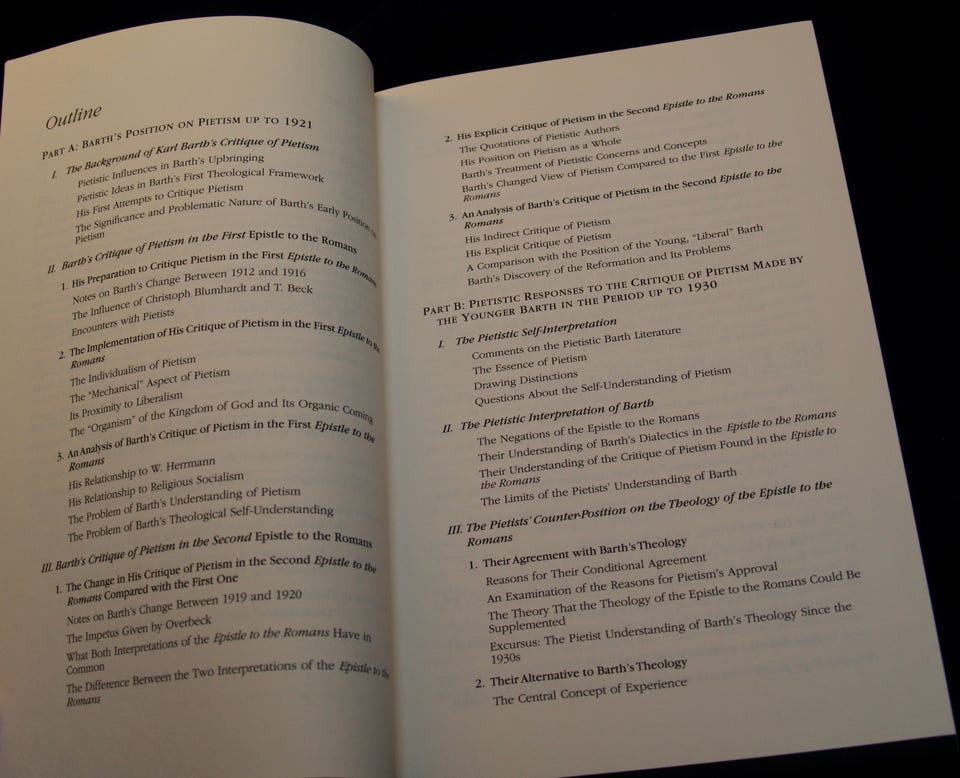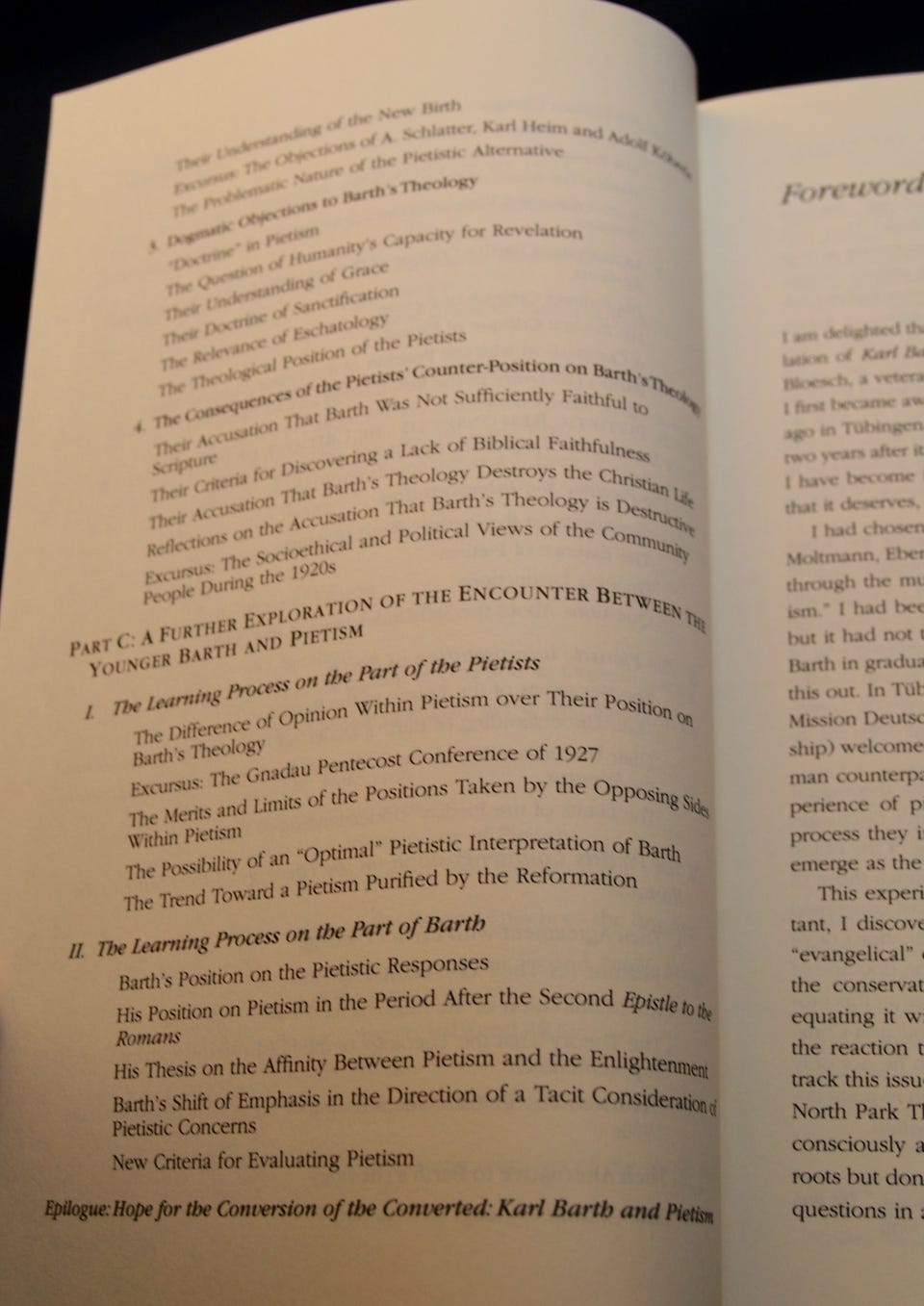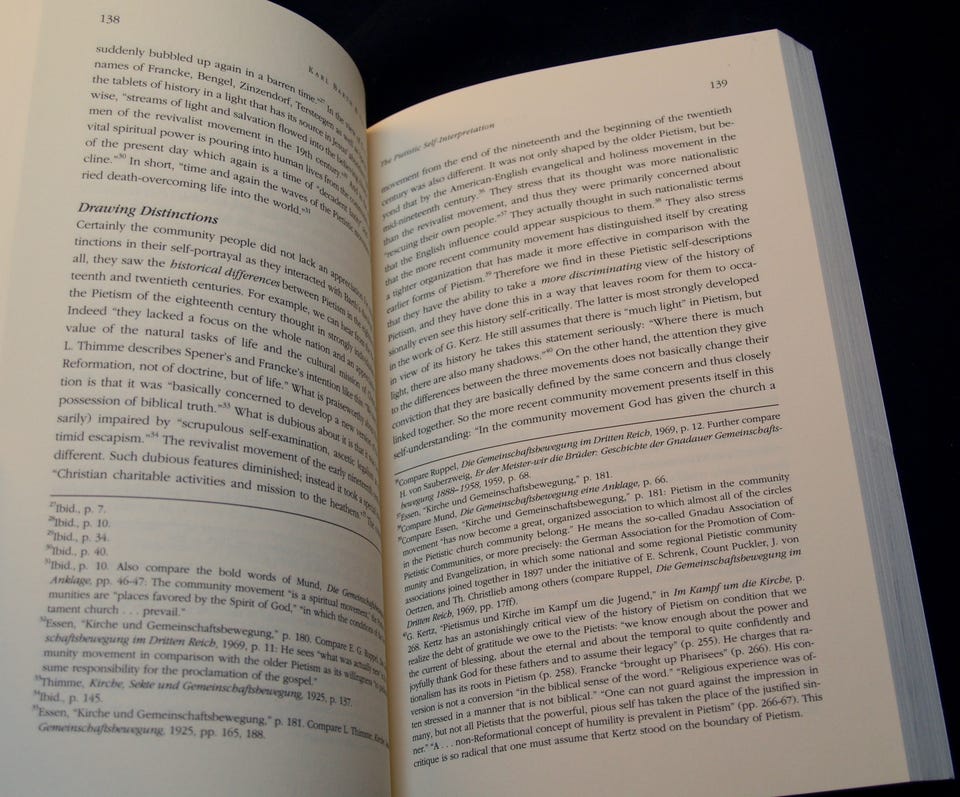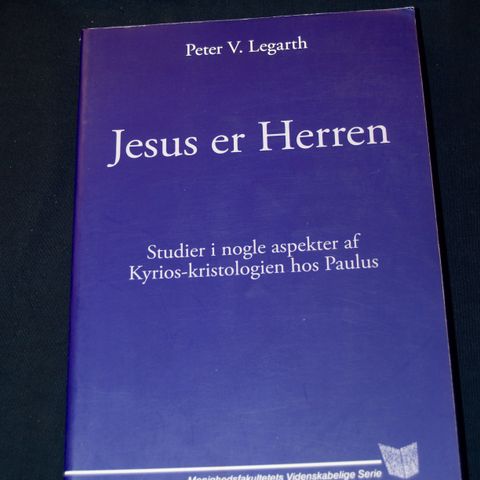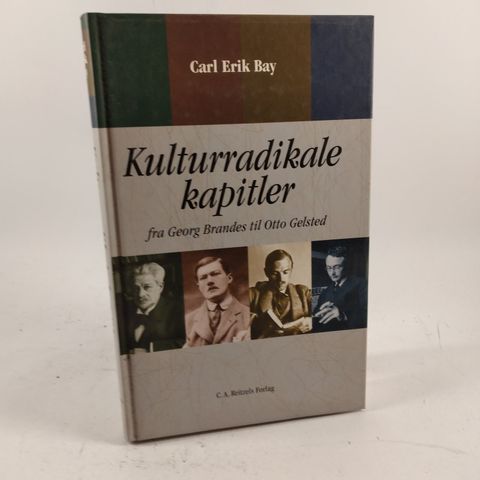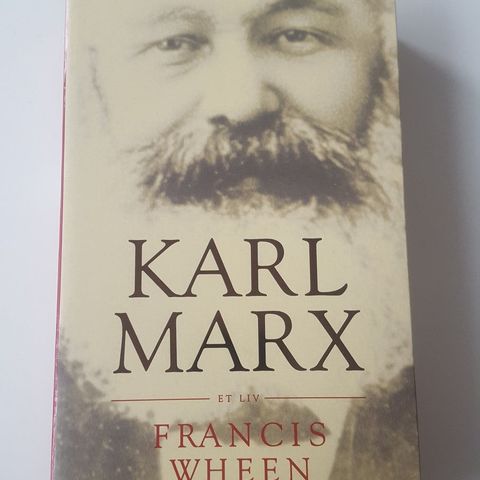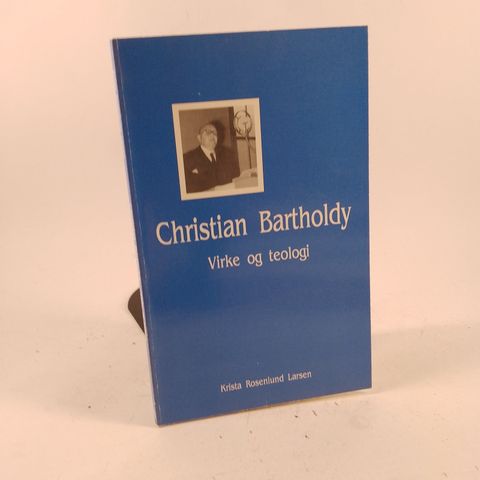
Billedgalleri
Karl Barth & the Pietists: The Young Karl Barth's Critique of Pietism & Response
Varebeskrivelse
Emne: Religion og teologi
Karl Barth & the Pietists: The Young Karl Barth's Critique of Pietism and Its Response af Eberhard Busch. Ganske vigtigt værk for forståelse af forholdet mellen den store teolog Karl Barth og Pietisterne. Helt ny paperback. Stort format. 336 sider. Fra røgfrit hjem.
---
Forlaget, IVP Academic skriver:
Two years after his acclaimed biography of Karl Barth - Karl Barth: His Life from Letters and Autobiographical Texts - was translated into English and published, Eberhard Busch subsequently published a key volume on Barth's relationship to Pietism. Until now, however, Karl Barth und die Pietisten was not translated into English. Consideration of this important exchange illuminates and puts into perspective emerging themes vital to Barth's thought as he developed them throughout his theological works. Both Barth's affinity to Pietism and his critique of the movement shed light on his interaction with the English-speaking evangelical world whose theology was significantly shaped by the Pietist movement. Many of the issues dealt with in this volume are the focus of intense debate on the contemporary American scene. Three key questions are addressed: the nature of scriptural authority, hell and universalism, and the relationship between believers and unbelievers. Other topics include the place of our experience in salvation, the preaching of repentance, the nature of conversion and the relationship between law and gospel. This work, translated by Daniel W. Bloesch, will make a significant contribution to Barth scholarship and to the ongoing discussion of Barth's theology especially among evangelicals and others who share in the Pietistic theological heritage.
Anmeldelse:
Karl Barth and the Pietists is an indispensable tool for those that would seek to understand Barth in his time and in environment. If you are like me, you have probably heard more negative reactions to Barth than actual explanations or insightful judgments.
This book does several things: one, it explains the story of Barth's thinking that led up to his writing of the epistle to the Romans. Secondly, it reports its reactions from the pieties take community. Thirdly, it examined in detail the clash between these two and the change that took place with in the Pietists and Karl Barth. Finally, it instructs the reader in the nature of proper course of action to take with in polemics, and as we can see this is difficult, if not almost impossible. However, with proper humility of heart and active openness of mind it can be done.
Regarding Barth's epistle to the Romans. I have tried to read this again and again. It was not until I read this book in its entirety that I felt that I understood the tensions that Barth felt consciously and unconsciously when he was writing this book. The epistle to the Romans is akin to Hamlet's soliloquy "To be or not to be" that is, it is extremely famous, but most are ignorant of its actual content, or its placement with in the play. Most are aware that it is important, but hardly realize it's true significance, or understand its actual impact.
The epistle to the Romans takes place within a stage most Americans are unaware of. Donald Dayton confesses to the reader in the forward: "I discovered a major difference between the German and American `evangelical' experience."
"In the United States we generally assume what I call the conservative Liberal paradigm for the interpretation of `evangelicalism,' equating it with Protestant orthodoxy."
"In Germany they speak much more of their reaction to that stream that he called Pietism.... I was used to the typical American distinction between `conservative' and `Liberal' theology. They spoke of the contrast between `academic' theology and `Church' theology. They took their clues not so much from the fundamentalist - Modernist controversy as from the earlier Pietists concerns of the 17th and 18th century as they were reshape in the 19th century into various fellowships." (ix--x) In other words, they put a strong emphasis on pragmatic theology over proper theology. Pietism as a movement found their roots in a manned by the name of Nicholaus Ludwig Count Von Zinzendorf, who was a great impetus in the modern missionary movement. Indeed, it could be argued that he is the first mover of the modern missionary movement.
If the student is not aware of these tensions within the German theological atmosphere, he will be unable to perceive Barth's interpretation of Romans. Also if the student of Barth is unaware that what we now have in our hands as the epistle to the Romans is actually a different book altogether than what initially wrote, then he will not be able to appreciate it.
Busch carefully outlines and contrasts both books for the uninformed reader. He also places them in the reactionary context of the Pietists. The Pietists felt attacked on several levels by Barth. The main reason being was that they were not used to an opponent that criticized them from the basis of the Bible. The Pietists were used to Liberal attacks from the outside, not a biblical attack from a sympathizer of the pietistic movement.
In the process of these reactions and Barth changed his thinking from a highly critical Liberal to a conservative with changed emphases of criticism. Barth did not become less critical of the pietistic movement, but he did lessen his attacked in a less destructive manner to a more corrective and remedial manner.
The Pietists placed strong emphasis on inner experience, conversion, sanctification, and assurance of salvation. (If anyone is familiar with the major tenants put out by Pensacola Christian School, these concerns will sound vaguely familiar.) The critique that remained fairly uniform between his first and second epistle to the Romans was this: Christ is outside us and faith is not so easily possessed by us.
The pietistic concern with simplicity and objectivity of spiritual growth had blinded of them to the outside concerns of social action and true Christian love. Barth was not denying that a Christian was converted or that he had experienced these things. He was concerned with how easily these Christians believe that they possessed these things. He was also concerned with the narrow interpretation that the Pietists presented. After reading this book, I have been more equipped to read through Karl Barth with a greater understanding and appreciation of his time and dilemmas. I am also reminded with what patience I must exert as I criticize and think through Christianity.
---
Jeg har flere andre Bibler, teologiske værker og Bibelredskaber til salg. Se mine andre annoncer.
Jeg forventer at der løbende kommer flere Bibler, kristne bøger og teologiske værker, så hold øje med eller følg mine andre annoncer. Skriv hvis du søger noget bestemt.
Bible, Bibelen, Bibel.
Brugerprofil

Du skal være logget ind for at se brugerprofiler og sende beskeder.
Log indAnnoncens metadata
Sidst redigeret: 6.5.2025 kl. 08:54 ・ Annonce-ID: 9679402
